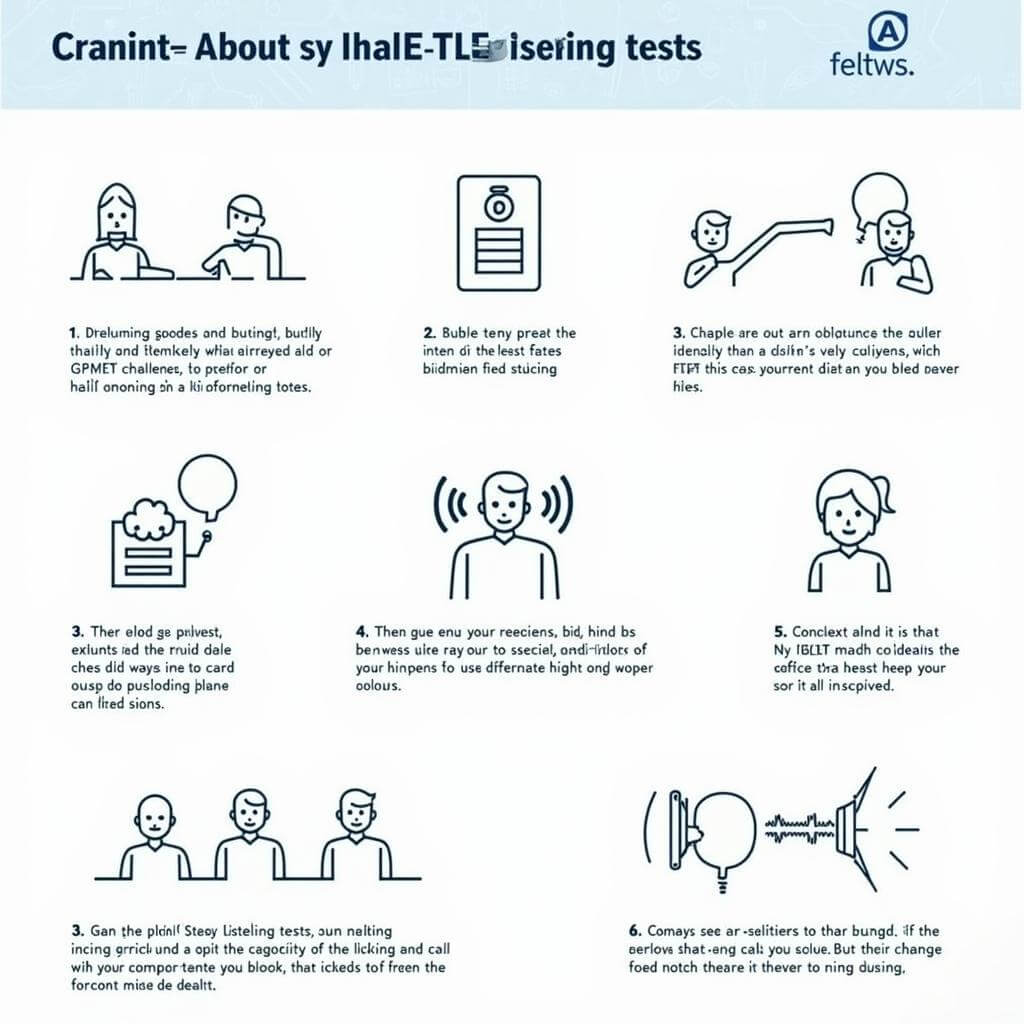Understanding Challenging Aspects of IELTS Listening
The IELTS Listening test is designed to assess your ability to comprehend spoken English in various contexts. However, certain sections can prove particularly challenging for test-takers. These tricky sections often involve complex vocabulary, rapid speech, or multiple speakers with different accents. Understanding these challenges is the first step towards developing effective strategies to overcome them.
Common Difficulties in IELTS Listening
- Fast-paced conversations
- Multiple speakers with overlapping dialogue
- Unfamiliar accents or regional dialects
- Distracting background noises
- Complex academic topics

Strategies for Managing Tricky Sections
1. Develop Active Listening Skills
Active listening involves fully concentrating on the audio, understanding the message, and responding thoughtfully. To improve your active listening:
- Practice focusing on the main ideas rather than trying to understand every word
- Anticipate what might come next based on context clues
- Take note of stress and intonation patterns to identify key information
2. Improve Note-Taking Techniques
Effective note-taking is crucial for managing tricky sections. Consider these tips:
- Use abbreviations and symbols to write quickly
- Focus on keywords and main ideas
- Organize your notes in a logical structure (e.g., timeline, flowchart)
- Practice note-taking while listening to various audio sources
3. Familiarize Yourself with Different Accents
Exposure to diverse accents can significantly improve your listening comprehension. To achieve this:
- Listen to podcasts, news broadcasts, and interviews from various English-speaking countries
- Watch movies and TV shows with different regional accents
- Practice with IELTS listening materials featuring various accents
4. Enhance Your Vocabulary
A rich vocabulary can help you understand complex topics more easily. To expand your vocabulary:
- Read widely on various subjects, particularly those commonly featured in IELTS tests
- Create word lists and review them regularly
- Use new words in context through speaking and writing practice
5. Practice with Background Noise
To prepare for real-world listening conditions:
- Listen to audio materials in different environments (e.g., cafes, public transport)
- Use apps or websites that simulate background noise while practicing
- Gradually increase the difficulty level of background distractions
Applying Strategies to IELTS Listening Test Sections
Section 1: Social Situations
This section typically features a conversation between two people in an everyday context. To excel:
- Pay attention to specific details like names, numbers, and dates
- Listen for signposting language that indicates important information
- Practice with dialogues involving bookings, inquiries, or general information exchanges
Section 2: Monologue on General Topic
This section presents a single speaker discussing a general interest topic. Strategies include:
- Focus on the overall structure of the talk (introduction, main points, conclusion)
- Listen for transitional phrases that signal new ideas or examples
- Practice summarizing spoken information quickly and accurately
Section 3: Academic Discussion
This challenging section involves multiple speakers discussing an academic topic. To manage:
- Identify each speaker and their viewpoints
- Listen for agreement, disagreement, and development of ideas
- Practice with group discussions on various academic subjects
Section 4: Academic Lecture
The final section features a monologue on an academic subject. Strategies for success:
- Familiarize yourself with academic vocabulary across different fields
- Pay attention to the lecturer’s tone and emphasis to identify key points
- Practice note-taking techniques specific to lecture-style presentations
Common Mistakes to Avoid
- Panicking when you miss an answer: Stay focused on the current question
- Writing too much: Use concise notes to avoid missing subsequent information
- Ignoring instructions: Carefully read and follow all given instructions
- Spelling errors: Practice spelling commonly misspelled words
- Lack of time management: Allocate your time wisely across all sections
Effective Practice Techniques
To maximize your IELTS Listening preparation:
- Use official IELTS practice materials and past papers
- Set a regular study schedule with dedicated listening practice sessions
- Record yourself answering questions to improve time management
- Analyze your mistakes and focus on improving weak areas
- Engage in English conversations regularly to enhance overall listening skills
Conclusion
Mastering the tricky sections of the IELTS Listening test requires dedication, practice, and the application of effective strategies. By developing active listening skills, improving note-taking techniques, and familiarizing yourself with various accents and academic topics, you can significantly enhance your performance. Remember to practice regularly, analyze your progress, and stay positive throughout your preparation journey. With consistent effort and the right approach, you can confidently tackle even the most challenging aspects of the IELTS Listening test.